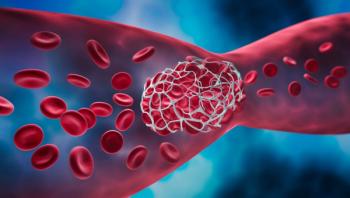
Judging Up-and-Coming Hemophilia Treatments
Long-acting recombinant replacement factor gets favorable rating from multidisciplinary group. Gene therapy was viewed with some wariness.
Anticipated agency approvals of emerging innovative hemophilia treatments are bound to disrupt healthcare organizations and patient care management. The pipeline includes subcutaneously administered coagulation factor replacements, treatments with a longer duration of action and potentially curative gene therapy.
In a pilot study published in
Healthcare professionals in the study answered questions regarding hemophilia treatment innovations and their anticipated impact on their organization. An online software was used to weigh each answer, and aggregate scores were generated. The criteria with the strongest weight were “acceptability for patient/care-giver/association” (weight of 31.4%), “number of emergency or unscheduled consultations” (weight of 20.3%), and “complexity of the innovation choice” (weight of 16.6%).
Innovations were given aggregate scores of 0 to 100, with the highest scores representing low impact on the healthcare organization. The two treatments with the highest aggregate scores were very long-acting recombinant replacement factor (88.8) and subcutaneous recombinant replacement factor (87). Low scores were associated with gene therapy (27.3) and anti-antithrombin RNA (21.9). Acceptability was perceived to be low for these treatments, and the therapy was considered complex and difficult to explain to patients.
Lead author Karen Beny and her colleagues suggest that discoveries made in this study can be used to guide organizational changes in anticipation of emerging hemophilia treatments. They emphasize that this type of sresearch should be repeated in other hemophilia treatment centers. The authors comment, “A better understanding of the nature and strength of the organizational impact of a therapeutic innovation should allow for a better match between therapeutic choice and individual’s health determinants (biological characteristics, family environment, local health system, cultural context, etc.), to understand the most suitable patient support, and to ensure an optimal healthcare pathway, reducing the risk of dropouts.”
Newsletter
Get the latest industry news, event updates, and more from Managed healthcare Executive.























